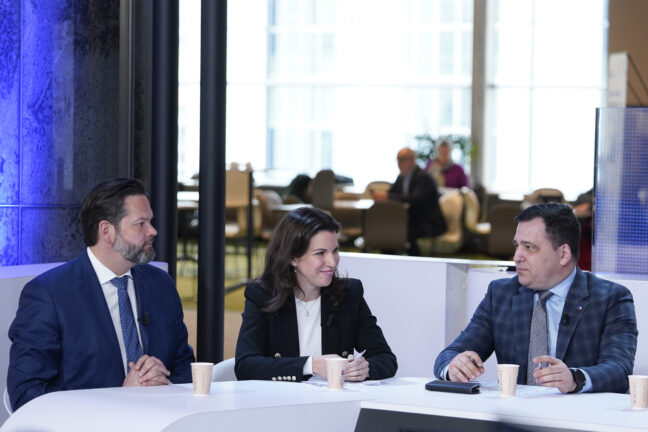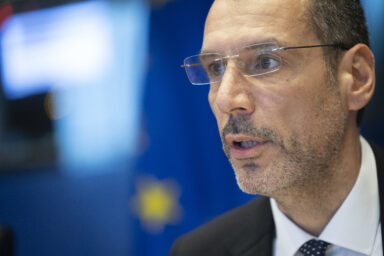Only twenty per cent of irregular migrants denied asylum really return to their home countries. If we resolve this issue, it will not only help the EU as a whole but also legal immigrants, who will be able to integrate more easily into European societies. Lukas Mandl, an Austrian member of the European Parliament, brought forward this point in the latest episode of the EU Perspectives podcast in which he discussed migration with fellow MEP Tomáš Zdechovský (EPP/CZE); Katarína Cséfalvayová, Director of the Institute for Central Europe; Camille Le Coz, Director of Migration Policy Institute Europe; and Başak Yavçan, Head of Research of the Migration Policy Group.
Migration is a big deal in today’s European politics. Mr Mandl elaborated on both the reasons and implications of the status quo: “I would say migration is a big issue for obvious reasons. We’ve had this major migration crisis since 2015 and it’s still not resolved. Europe is one of the most attractive parts of the world, but in contrast to other very attractive parts of the world, we don’t yet have a fully-fledged system of dealing with irregular migration,” he said.
“Neither do we have a fully-fledged system of competitiveness when it comes to legal migration for work, one we could use in this demographic winter in Europe, but that’s another issue. It’s a figures-based, obvious fact that (migration) is always an issue on many people’s minds in Europe because of the integration problems, the lack of integration in many, many societies in many, many cases,” Mr Mandl said.
The Austrian MEP went on to mention the fact that only 20 percent of irregular migrants denied asylum are really returned to their home countries. “Even if there is a judicial decision of returning them, of sending them back home, of requesting them to go to their home countries, only only one in five would do that,” Mr Mandl said. This situation put some pressure on the new European Commission to act, to make a proposal. “I’m really positively surprised. How clear, how good in the end, how promising these proposals from the European Commission are now,” he stressed.
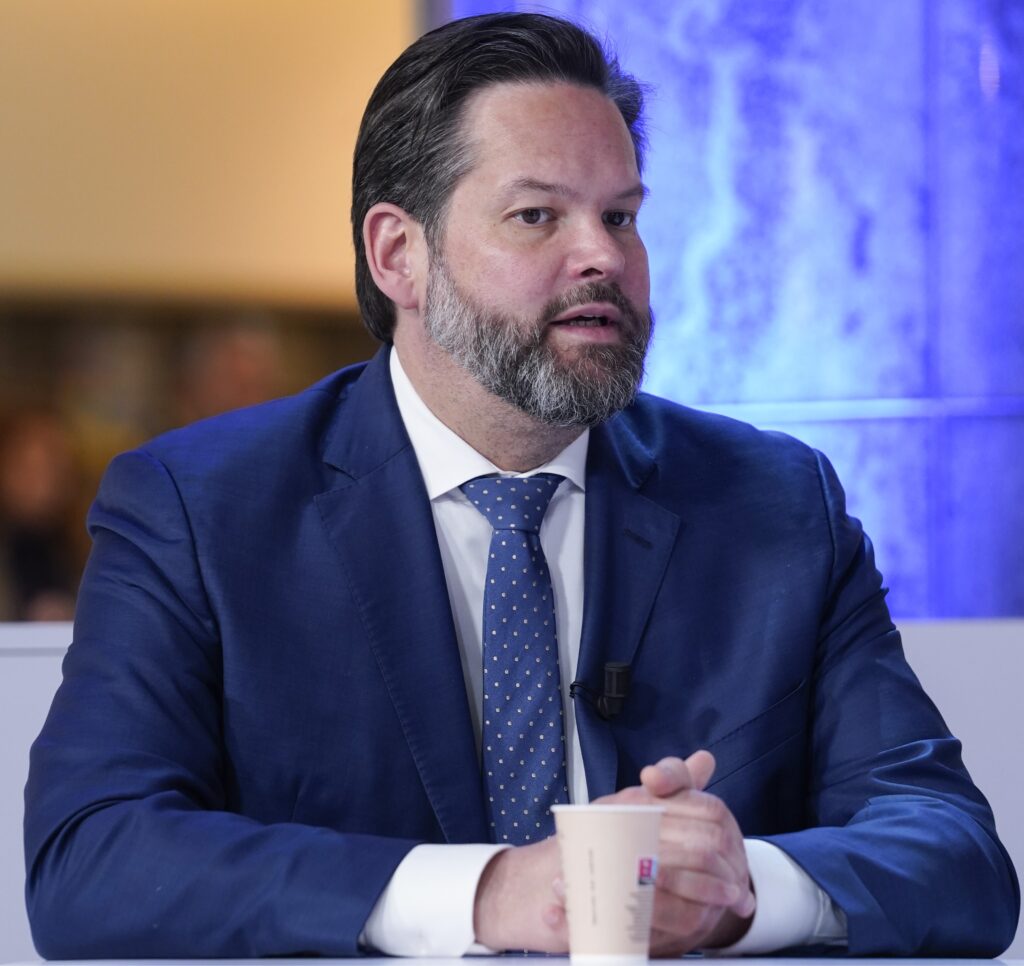
Ms Cséfalvayová of the Institute for Central Europe then expanded on the proposals in greater detail. “What the proposals seek to do is for instance, to have a common EU return order,” she explained. In essence, this means that, should a person receive a return order from one member state, it is valid in other member states as well. ”Overall, this proposal is tougher on returns. It increased, for example, the duration of detention for people who receive a return order, but it also foresees an increased role for agencies like the EU Border Agency Frontex in terms of what it can do on return,” Ms Cséfalvayová said.
Making human trafficking difficult
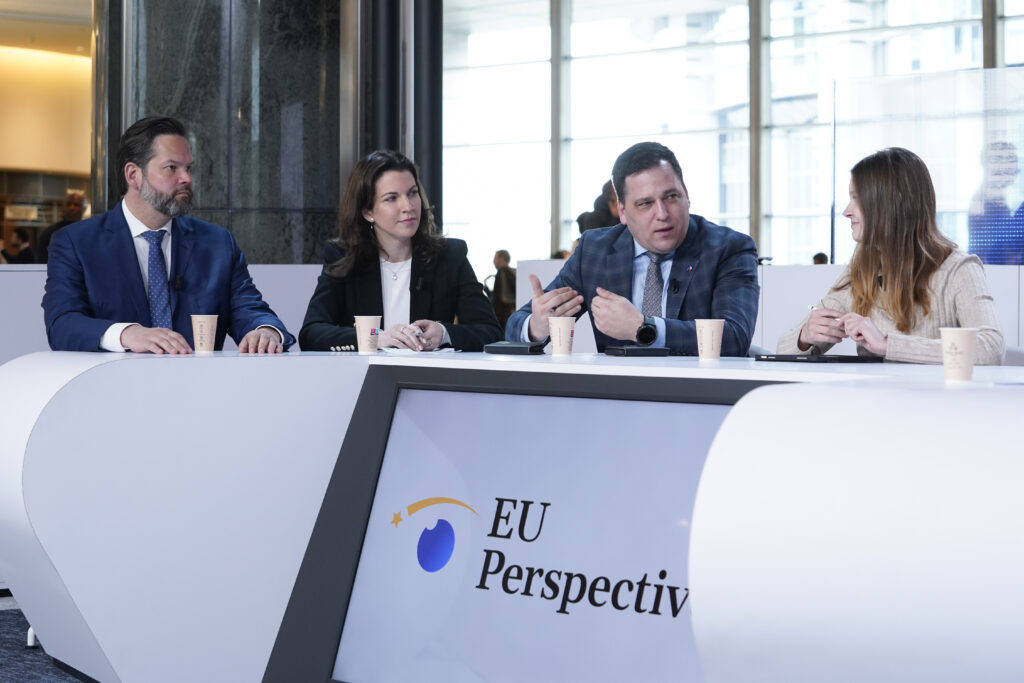
“Being critical (to the European Commission) is my obligation as a parliamentarian,” Mr Mandl continued. “But I have observed that this is a very good proposal because it addresses the real problems. And it does not only, let’s say, address the one sentiment accepted in the so-called Brussels bubble, it really addresses what people’s concerns are, and that’s the most important thing,” the MEP praised the EU executive arm’s latest moves on the matter.
This is also important in order to address the issue human trafficking, Mr Mandl went on. “It won’t be as easy to collect people’s money, putting their lives at risk, and sending them to Europe as irregular migrants,” he said. “If it isn’t that easy anymore, it will not happen so much anymore,” he then offered an insight.
You might be interested
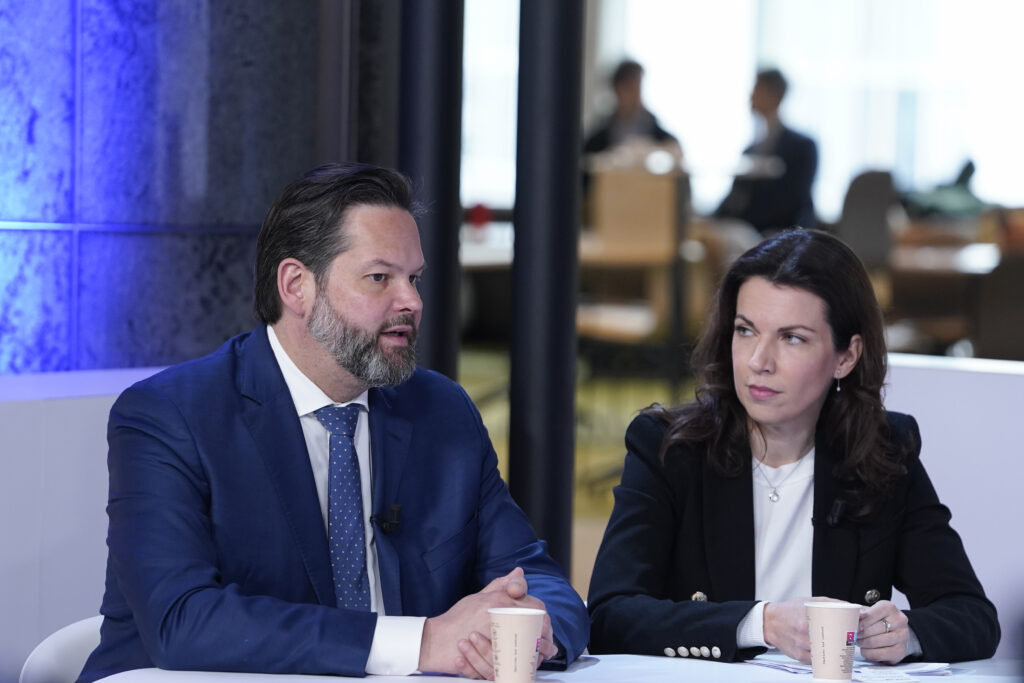
Neither is the EU asylum pact all roses, Ms Le Coz of the Migration Policy Institute Europe pointed out. “There are issues within the asylum pact touching upon the human rights issue that can galvanise the situation because of the very divergent capacities of the member states. Spain, Italy, Greece were really worried that they would end up taking up all the asylum seekers. So if that ends up being the case, with all the rest of the countries not taking their share, then the (solution) cannot be sustainable in the long run,” Ms Le Coz said.
Getting ready for the next wave
The Austrian MEP then ventured into speculation that the new measures would make it easier for legal immigrants to integrate into European societies. “It will be easier for these people to arrive in Europe when not a vast majority will have to be sent back,” he said.
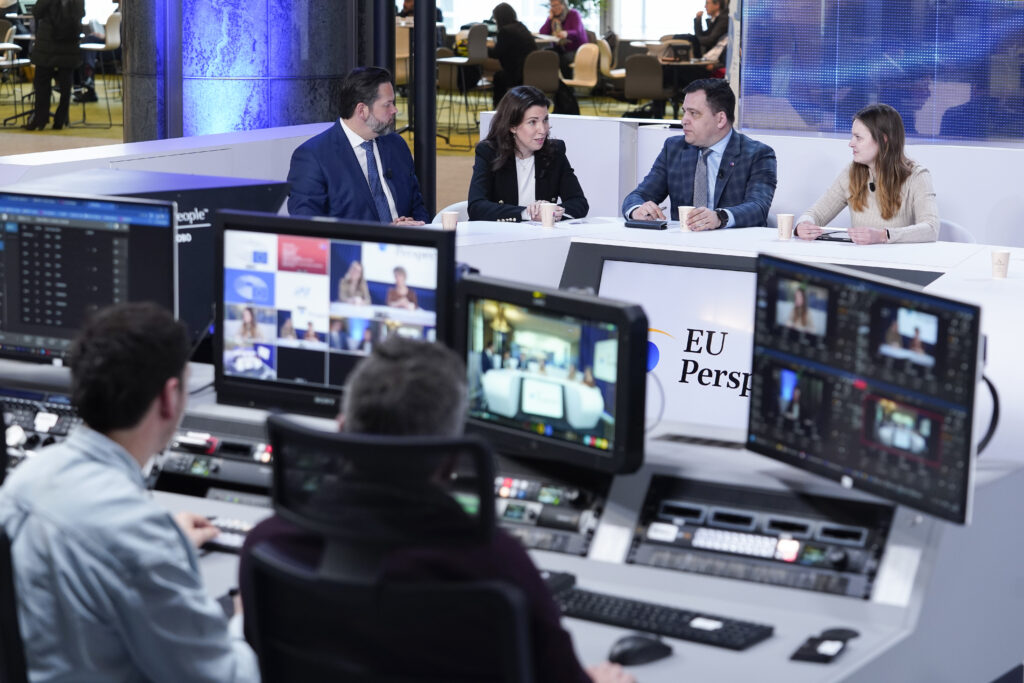
In Mr Mandl’s view, though, the new state of affairs will benefit those in genuine need. “That’s why this regulation will also be in the interest of those who would be uprooted anyway, in the interest of those who have a right of asylum. That’s an important right,” he said. “I mean, we are still Europe and we have certain values to be defended, and this is our role,” the Austrian MEP said.
The matter is becoming particularly urgent in today’s unstable international political climate, Ms Yavçan of the Migration Policy Group stressed. “We don’t know when to expect another influx of refugees, of asylum seekers,” she said. “The Syrian regime has been overthrown and we don’t know what the neighbouring countries with the majority of Syrian refugees, such as Turkey, will do. They might decide to send them back, and these people might decide to come to Europe instead,” Ms Yavçan pointed out a potential future problem.
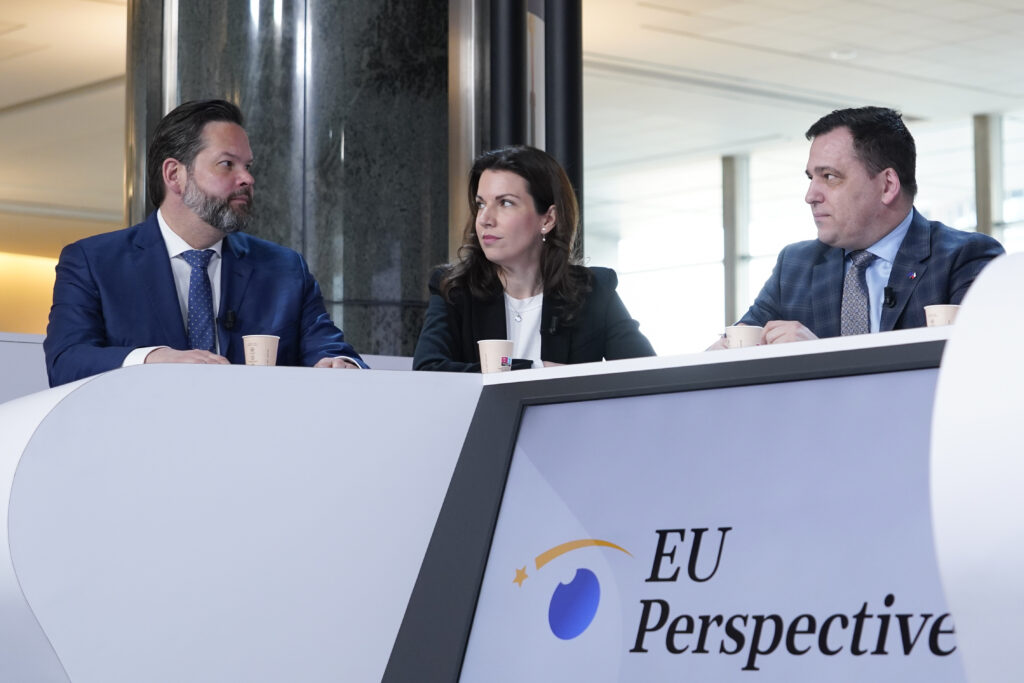
“Now that Russia has lost its playing field in Syria, will it now instead focus on another country, say, Libya? That could create again a conflict generating a lot of refugees. So we have to be prepared for a next wave of refugees, and we have to be prepared with a functioning system of migration and asylum management,” Ms Yavçan said with an eye on the future.
Need for speed
To the thorny question of the trust of the EU citizens in the Commission’ latest steps, Mr Mandl replied “it’s about time” to have the trust restored. “It’s philosophically always interesting, and also for historians, to reflect on what could have been done earlier,” he pondered. “Sometimes it takes really long. We negotiated on the asylum and migration package for three-and-half years in the European Parliament’s Home Affairs Committee from fall 2020 to April last year, 2024. (…) The plenary was then ready to vote on it in May. Luckily, we have the asylum and migration package in place – but the negotiations lasted much too long.”
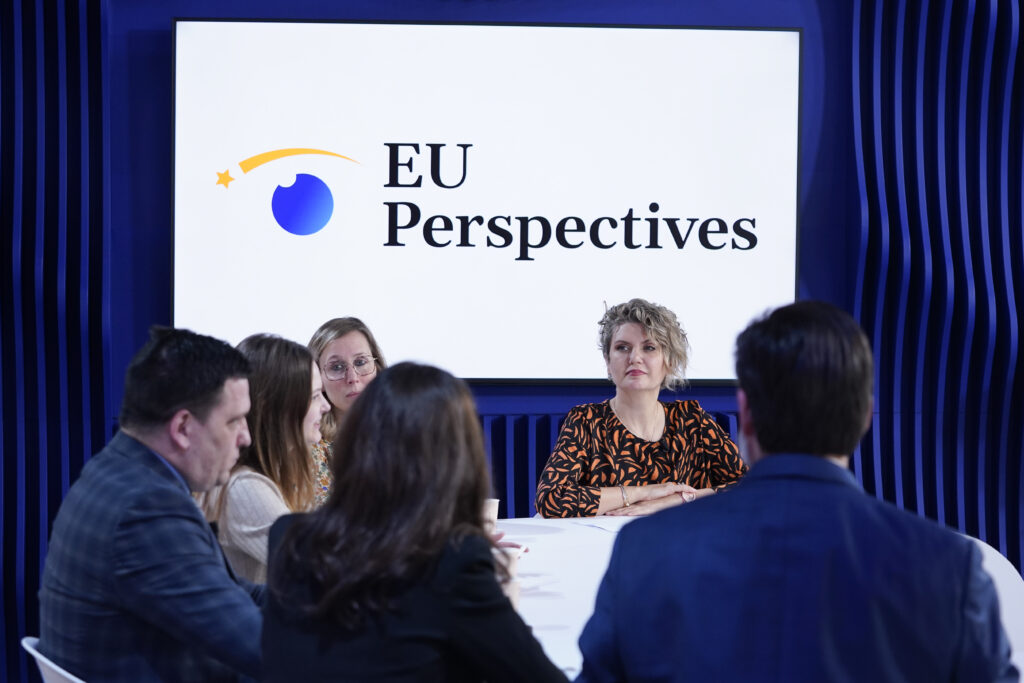
Mr Mandl’s fellow EP member Tomáš Zdechovský voiced a similar sentiment. „The procedure is too long also. We have to shorten the procedure. And I think that it’s most important things that we have to do because we are now in the in a very important time for the European Union. It means that we have to make Europe safe and defend our values,“ the Czech MEP said.
Mr Mandl then appeared sympathetic to some member states dragging their feet to implement already agreed measures. “One has to understand that we are a democratic structure. The European Union is a parliamentary democracy. Part of parliamentarism is negotiations in order to achieve compromises. And the behaviour of, say, the Polish government is part of this negotiation process. And I have the assumption that the Polish government pushing in the right direction will lead to even better regulations. That’s why I’m pretty confident this will lead to a positive scenario.”
